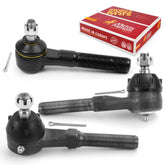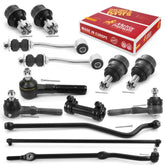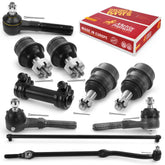What Happens If My Car Runs Out of Brake Fluid?
What Happens If My Car Runs Out of Brake Fluid?
Brake fluid is a critical component of your vehicle's braking system. It plays a vital role in transmitting the force from your foot on the brake pedal to the actual braking mechanism. Without an adequate amount of brake fluid, your brakes won't function properly, compromising your safety on the road. In this blog post, we will explore what happens if your car runs out of brake fluid and the potential consequences of such a situation.
Loss of Hydraulic Pressure:
Brake fluid is responsible for creating hydraulic pressure within the braking system. When you press the brake pedal, the fluid transfers the force to the brake calipers or wheel cylinders, which then apply pressure to the brake pads or shoes. If your car runs out of brake fluid, there won't be enough hydraulic pressure to engage the brakes effectively. As a result, your vehicle's braking performance will be severely compromised, leading to longer stopping distances and an increased risk of accidents.
Inadequate Braking Power:
Without an adequate supply of brake fluid, the braking power of your vehicle will be significantly reduced. Brake fluid operates under high temperatures and pressure, and it also contains additives to prevent corrosion and maintain the proper lubrication of brake components. When the fluid level drops too low, the brakes may not engage properly, leading to a loss of stopping power. You may experience a spongy or unresponsive brake pedal, making it difficult to bring your vehicle to a complete stop.
Increased Risk of Brake Failure:
Running out of brake fluid can potentially lead to brake failure, which is a dangerous situation. Brake fluid also acts as a lubricant for various brake components, preventing them from overheating and wearing prematurely. In the absence of an adequate supply of fluid, the brake system can experience excessive heat and friction, resulting in damage to vital components such as the brake calipers, wheel cylinders, or master cylinder. This can eventually lead to a complete brake system failure, leaving you with no means to stop your vehicle safely.
Damage to Brake Components:
Brake fluid also serves as a hydraulic fluid to transfer pressure to various brake components. When the fluid level drops too low, air can enter the brake lines, creating air pockets or bubbles. These air pockets can compress, causing a soft or spongy brake pedal. Additionally, the lack of fluid can expose brake components to moisture and air, leading to corrosion, rust, and potential damage to brake lines, calipers, and wheel cylinders.
Increased Repair Costs:
If your car runs out of brake fluid and experiences brake system damage or failure, the repair costs can be substantial. Repairing or replacing damaged brake components, such as calipers or wheel cylinders, can be expensive. Additionally, if the lack of brake fluid has caused further damage to the braking system, a comprehensive inspection and repair will be necessary to ensure its proper functioning. It's essential to address brake fluid issues promptly to prevent additional damage and higher repair costs.
Running out of brake fluid is a serious issue that can compromise your safety on the road. It leads to a loss of hydraulic pressure, inadequate braking power, increased risk of brake failure, and potential damage to brake components. Regularly checking your brake fluid level and promptly addressing any leaks or low levels is crucial for maintaining a safe and reliable braking system. If you suspect brake fluid issues or experience any abnormal braking behavior, it's essential to have your vehicle inspected by a qualified mechanic to diagnose and resolve the problem before it escalates. Remember, proactive maintenance and regular inspections are key to ensuring the proper functioning of your vehicle's brakes and keeping you safe on the road.









